Ian Paterson: Surgeon was 'psychopathic like Shipman'
- Published
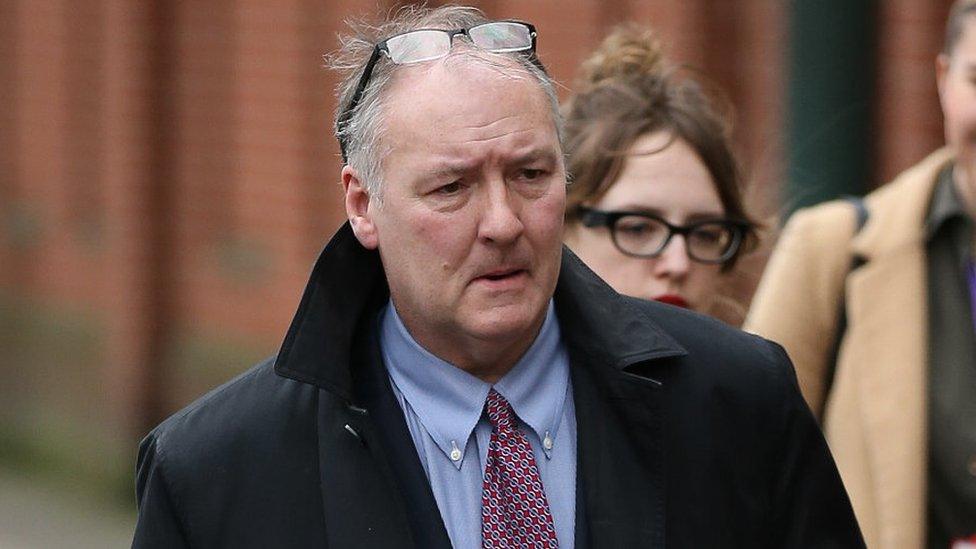
Ian Paterson's trial for wounding 10 private patients was the tip of the iceberg
Once a respected breast surgeon, Ian Paterson was trusted by his patients. But over the course of his career, he mutilated hundreds, made countless false diagnoses and carried out needless operations that left lasting physical and emotional scars. Prosecutors said his motives may have been financial, but was there a more sinister explanation for his actions?
"We trusted Mr Paterson... he was God to us," one of his victims, Carole Johnson, told his trial.
Brimming with confidence and charisma, the surgeon was precisely the kind of man people trusted with their lives. His unwavering composure reassured many an anxious patient as they were wheeled into the operating theatre.
He was, after all, the Heart of England NHS Trust's busiest surgeon, taking on the lion's share of operations in his department, as well as running busy private clinics in the West Midlands.
Patients thought he was a "wonderful doctor", said Prof Philip Drew, a cancer surgeon who gave expert evidence for the prosecution.
"I've met Mr Paterson personally, and he's very warm, credible person, you wouldn't ever suspect he was capable of this sort of thing."

'He removed my breast for no good reason at all'
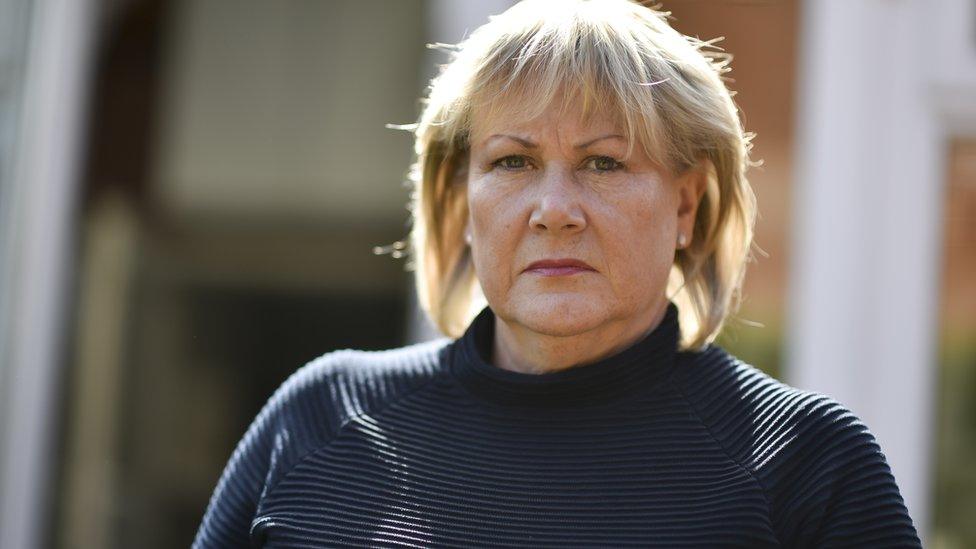
Frances Perks was 35 when she met Paterson after a lump was found in her breast.
She had recently lost her mother and sister to breast cancer, and the surgeon told her to have double mastectomy or risk "full-blown cancer".
In the end, she opted to have one breast, her left, removed, and underwent eight other operations at Spire Parkway Hospital in Solihull after Paterson said he kept finding "sinister" looking lumps.
The truth was, that Mrs Perks, of Burntwood, Staffordshire, should never have had any of the procedures, let alone lose her breast.
"I feel hatred. Pure hatred. I did not think I could hate someone as much as I hate him."

But, as various investigations have now revealed, Paterson routinely lied to and manipulated patients, colleagues and his bosses while carrying out disfiguring, dangerous procedures.
The true number of people he damaged is unknown. His trial at Nottingham Crown Court was the tip of the iceberg.
How was he able to get away with it for so long?
Behind the warm-hearted bedside manner that earned him the trust of thousands of women and men was a Jekyll and Hyde character described as an "arrogant bully" by former colleagues.
One medic, who worked with him for a number of years, said he had "a very aggressive, bullying sort of personality, which allowed him to get his way".
"People would generally go around him, they were afraid of him.
"He didn't want anyone in his way. Because of his personality he tended to be isolated and he quite liked that. People would avoid him, go around him and not deal with him. So he never got questioned or hauled up."
Breast surgeon guilty of harming patients
Patient 'violated' by breast surgery
However, something more worrying than personality clashes soon became apparent. In 2002, a small number of Paterson's colleagues noticed the women he was performing mastectomies on were not having their full breast removed.
It emerged Paterson had invented his own variant of the operation - a "cleavage-sparing" mastectomy.
He believed leaving tissue behind helped women get over the trauma of losing their breasts by retaining part of their shape.
It was unregulated by the GMC and an infringement of national guidelines, which state the aim of a mastectomy is to remove the vast majority of breast tissue.
Joanne Lowson, who underwent the operation privately, told his trial she was led to believe it would allow her to wear "bikinis and pretty tops".
What is cleavage-sparing surgery?
Paterson repeatedly convinced bosses it was safe, a 2013 report by legal expert Sir Ian Kennedy found.
But, on the contrary, the procedure was very risky.
"If you leave excess breast tissue behind there is a far greater chance cancer will return," one medical expert told the BBC.
Paterson was found to have exaggerated cancer symptoms in countless cases, performing mastectomies when much less invasive surgery - and in some cases, a simple course of antibiotics - would have sufficed.
Exactly why he carried out his dangerous and unnecessary operations is unclear.
Maintaining an image as a "busy, successful surgeon", earning more money through private work and being trusted by patients who - largely due to his own lies - believed they were at great risk, were suggestions put forward by the prosecuting barrister, Julian Christopher QC.
Debbie Douglas: "He has mutilated me"
However, Prof Drew has a more sinister conclusion.
"Financial can't have been the only motive," he said. "What else are we left with? Either just [an] uncaring, unthinking almost psychopathic-type mindset, or perhaps he liked the adoration of the patient."
Prof Drew drew believes Paterson's behaviour is similar to that of killer doctor Harold Shipman.
"They both seemed to not understand that what they were doing was wrong. Or if they understood it, they did it anyway," he said.
While it is not known whether the surgeon's actions have contributed to any deaths, unlike in Shipman's case, Prof Drew believes Paterson's actions were fuelled by selfish, mysterious desires.
"I think both of them demonstrated some degree of psychopathic approach to the care for their patients, that it wasn't the patient that they were caring about, it was more their own goal, or their own importance that was driving their behaviour."
In his evidence, Paterson insisted he never intended to cause harm, that he acted in his patients' best interests and it was them who had opted for surgery.
He began working as a surgeon at Solihull Hospital, part of the Heart of England NHS Trust, in 1998, and soon became known for being a fast operator.
"He could do several operations for breast cancer in a morning while others would do two or three," the Kennedy report noted.
While some described his work as "dextrous and quick", others labelled it "slipshod" and "slapdash".
"Watching him operate was like a whirlwind," one surgeon commented.
"He would breeze into the theatre, with a sort of constant impatience with things, and just try and get on as quickly as possible. That is something I have not seen very often."
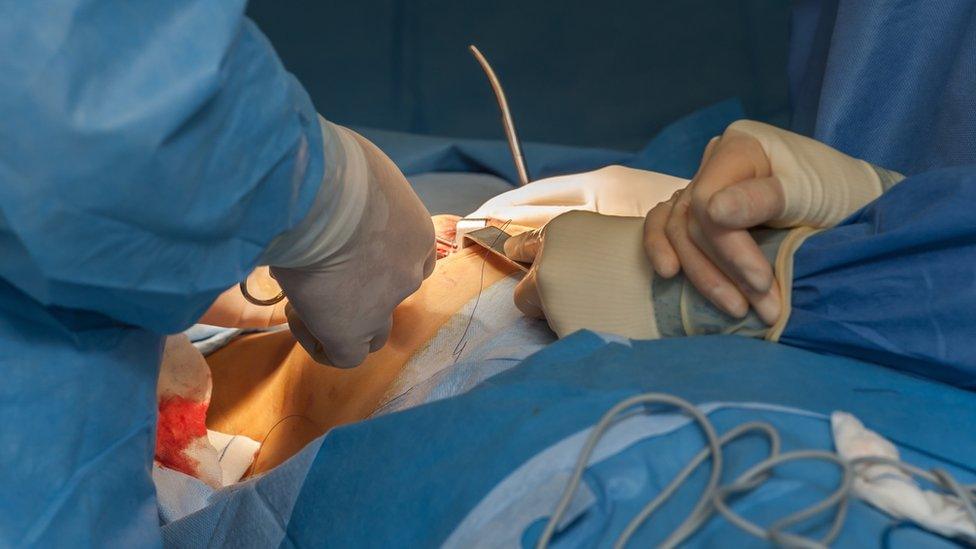
But one clinician, Dr Andrew Stockdale, noticed something was amiss with Paterson's surgery. He carried out an audit of 100 patients referred to him in 2003.
He found large numbers left with too much tissue who risked developing secondary cancer.
He shared his concerns and managers commissioned the first report into Paterson - but the resulting findings were only shared with senior bosses.
Dr Stockdale said years later: "The trust took not a blind bit of notice of it and, not only that, they swept it under the carpet."
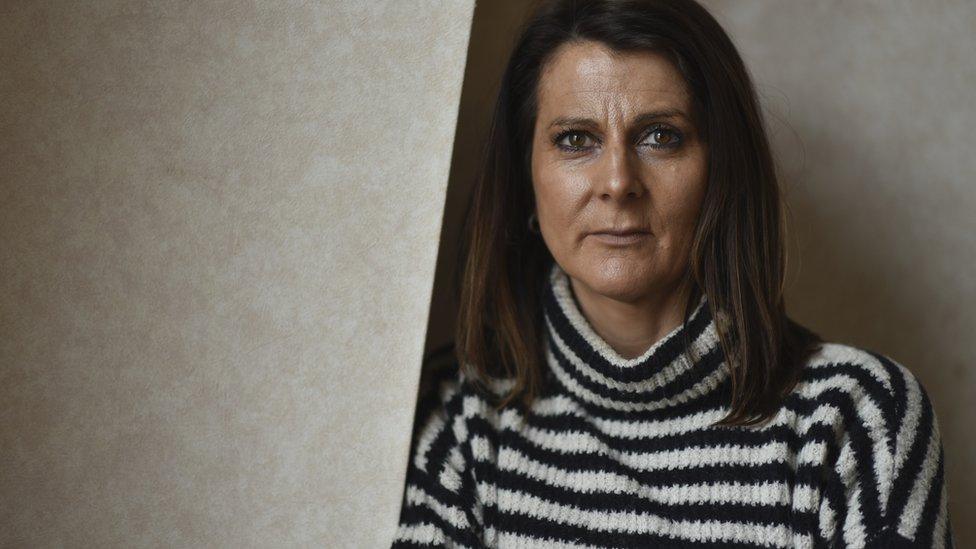
Cheryl Iommi, who was wrongly told by Paterson she was developing cancer, is among hundreds seeking compensation
Paterson carried on working, unchallenged, until 2007 when a newly appointed surgeon took his concerns to managers.
This sparked further investigations and reports, which led to NHS bosses banning Paterson from performing his version of the mastectomy, prompting a closer examination of Paterson's previous work.
It became increasingly apparent something was wrong and 12 women who NHS bosses feared might be most at risk were recalled.
As word got out and stories began appearing in the press more of Paterson's former patients began presenting themselves at clinics, demanding to be seen.
By summer 2011, NHS managers had decided to recall all of Paterson's mastectomy patients.
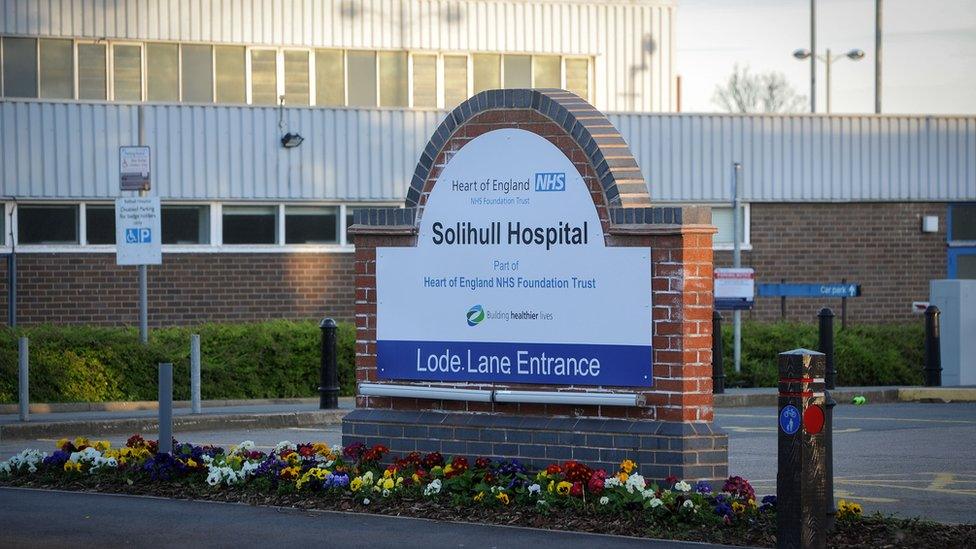
Ian Paterson had more than 4,000 patients during his time at Solihull Hospital
In the nine years he worked at the trust, there had been 1,207, although the total number of people he operated on there is 4,424.
He treated thousands more privately.
Paterson was suspended by the trust in May 2011 and by the GMC in October 2012. Police began investigating in 2012.
The testimonies of his patients in court, and Prof Drew's medical evidence contradicting Paterson's actions, convinced a jury Paterson was a very dangerous man.
"It's distressing to even think that someone would deliberately mislead a patient and submit them to effectively deforming surgery for no reason, no good reason at all, and let them believe that they'd had cancer for years when there was actually nothing wrong," said Prof Drew.
"Shipman was bizarre, Paterson is bizarre. They're both deliberately harming people and I think you have to understand the whole mindset of the medical profession that that is so wrong, it doesn't even occur to you that it can happen."
Failure to stop Paterson sooner has proved costly for his former employers.
The Heart of England Trust has paid out £17.8m in damages and costs to 256 patients, while a civil case this autumn will see 350 private patients seek compensation.
It is the human cost of his actions which has been nothing short of devastating.
Hundreds of patients have been left disfigured. Many still suffer mental health problems after having their cancer symptoms wildly exaggerated.
Tragically, many have died. Whether his actions contributed to their deaths is not yet known.